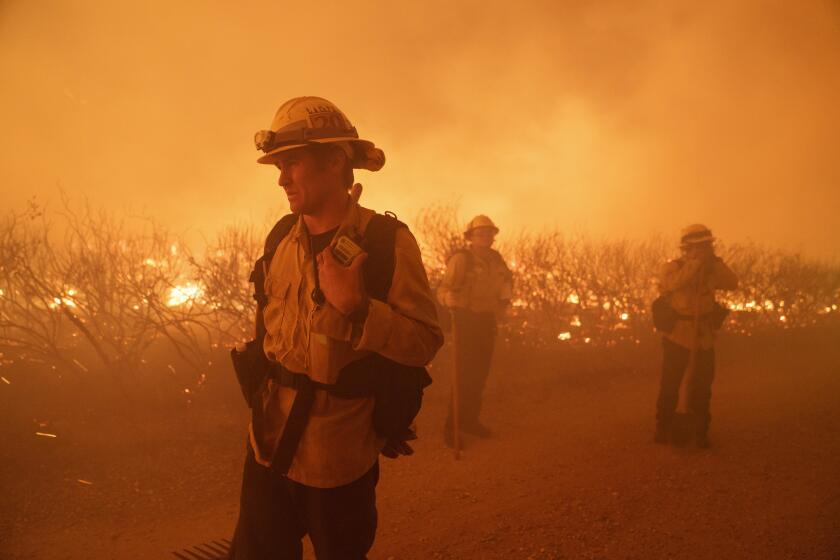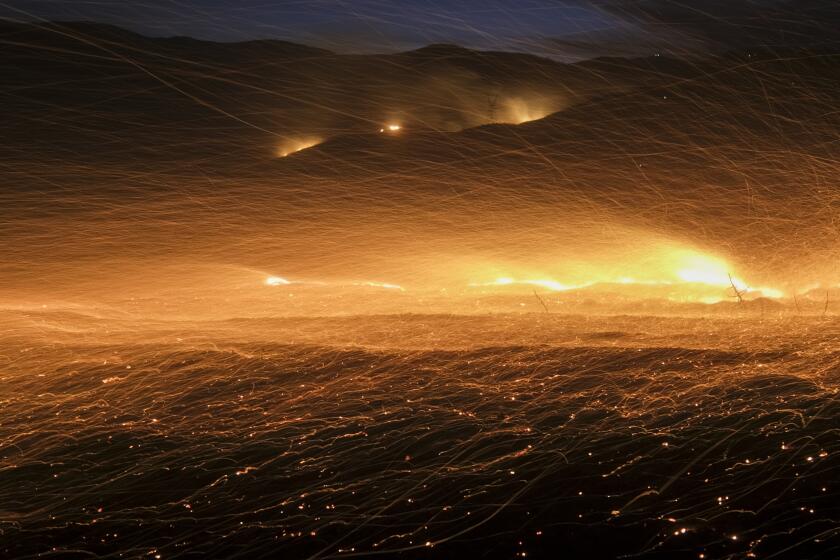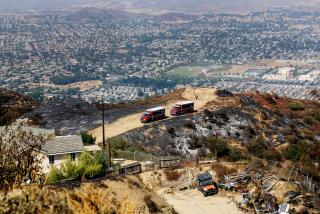Crews battle wildfires near Gorman and Sonoma: Buildings, thousands of acres burn
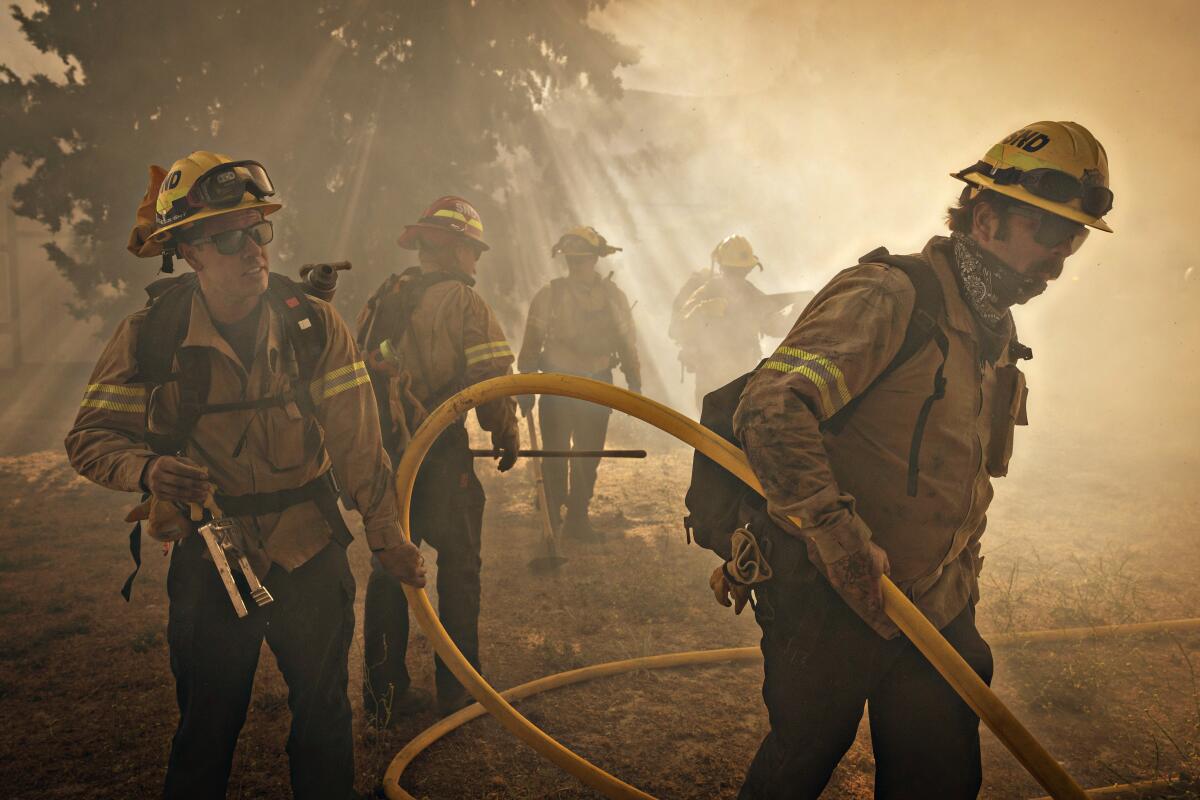
- Share via
A series of brush fires burned across Southern California and up and down the state Sunday, destroying structures and forcing evacuations in some locations, while engine crews braced for heavy winds overnight.
The largest blaze blackened nearly 15,000 acres in the Gorman area and remained just 2% contained late Sunday night, officials said. In Sonoma County, a fire scorched about 1,013 acres, tore though an unknown number of structures and prompted an evacuation order and warning in the Upper Dry Creek Valley, according to Cal Fire.
A precise count of how many people were told to evacuate was unavailable late Sunday, Cal Fire spokesman Jason Clay said. The fire was 15% contained.
“We’re trying to see what the winds are going to do,” Clay added. “Crews are going to be working hard tonight.”
Firefighters had better luck in the Lancaster area, where flames consumed about 340 acres and damaged some structures, officials said. For a time, nearby homes were threatened.
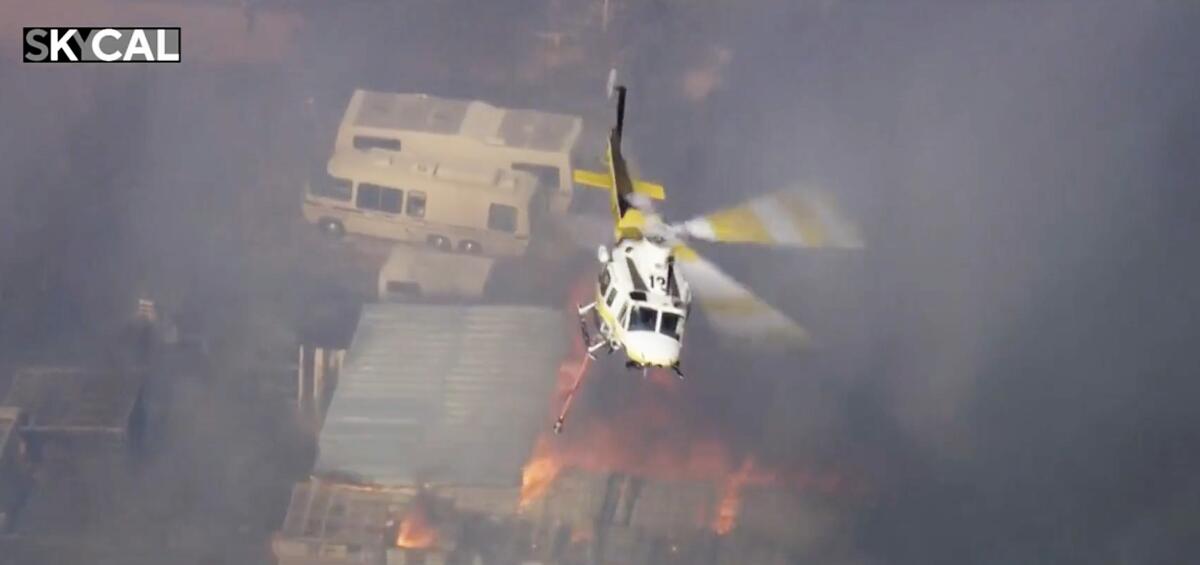
The blaze began near 80th Street West and Avenue K, according to the Los Angeles County Fire Department. By early evening, crews had contained the fire, and no other structures were threatened, department spokesman Craig Little said.
“Forward progress has been stopped,” Little said. “The fire isn’t going anywhere.”
The number of structures that were damaged was not immediately available.
On Saturday afternoon, Oscar Flores was riding an off-road vehicle with his 12-year-old son at Hungry Valley state park south of Gorman when he spotted billowing smoke in the distance.
The 33-year-old Oxnard resident wasn’t too concerned, thinking it was a car fire on Interstate 5, but then he was contacted by a park ranger who told him that he needed to immediately leave the off-road recreation area.
“It looked like it was the last day of the world. People were loading quickly and merging out, driving fast. The ranger said you have 10 minutes [to get] whatever you can pack,” he recalled Sunday. “Some were mad, upset they had to leave.”
Flores and his family and friends made it out safely, joining some 1,200 campers and visitors evacuated from the recreation area west of the freeway after a wind-driven wildfire that started around 2 p.m. south of Ralphs Ranch Road.
Videos and photos posted on social media captured an exodus of motor homes trailing ATVs from campgrounds crowded with groups celebrating Father’s Day weekend at the 19,000-acre park. The I-5 was briefly shut down Saturday at Quail Lake and Gorman Post Road, leaving traffic snarled, with some accidents reportedly caused by drivers who stopped to photograph the flames.
The fire quickly grew to 500 acres, and strong, gusty winds overnight in the Tejon Pass fanned the Post fire as it moved parallel to the I-5, heading southeast to Pyramid Lake, which authorities closed down, according to the California Department of Forestry and Fire Protection. The fire had grown to 14,625 acres and was 2% contained by Sunday evening as high winds, low humidity and steep terrain hampered firefighting efforts. The cause was under investigation.
Images of the Post fire in Southern California.
The fire burned an auto repair shop, damaged another building and threatened other structures to the south and west of the I-5, authorities said. Los Angeles County Fire Department crews rapidly responded, making aerial assaults with air tankers and water-dropping helicopters. The Ventura County Fire Department and U.S. Forest Service were aiding in the effort. At one point Sunday, about 400 firefighters and 70 engines were at the scene, according to Cal Fire.
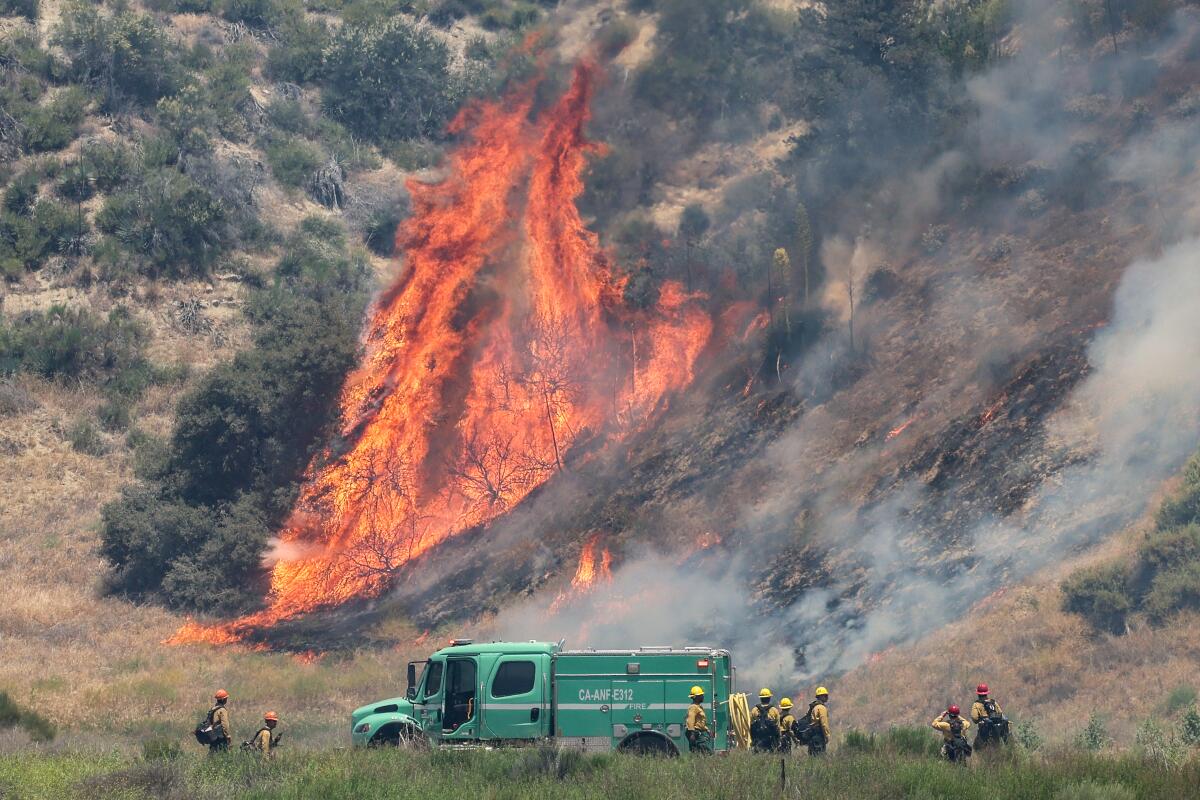
Temperatures in the mountainous area were forecast Sunday to reach the low 80s after topping 90 degrees Saturday. Afternoon wind gusts as high as 50 mph and humidity of 15% to 20% presented further challenges. “They are going to have a difficult time with the fire,” said Carlos Molina, a National Weather Service meteorologist.
Meanwhile, firefighters were battling another brush fire in the San Bernardino County community of Hesperia that broke out after 6 p.m. Saturday in the 18000 block of North Highway 173.
It prompted area road closures and an evacuation warning for the nearby Lake Arrowhead Estates community, according to Cal Fire. The brush fire was pushing east and after minimal activity overnight was at 1,131 acres by Sunday evening. Crews were strengthening the lines around the fire, which was 20% contained, and mopping up hot spots.
“They’re making really good progress building some containment lines,” Cal Fire spokesperson Chloe Castillo told The Times.
The cause of the fire was under investigation.
Fire weather days have increased in Western U.S. over the last 50 years, with some of the largest jumps in California, according to a new report by Climate Central, a nonprofit news outlet that reports on climate change.
The wildfires erupted as experts worked to gauge the potential severity of this year’s fire season. A wet winter has nurtured a potentially heavy fuel load of thick grasses, which are drying as temperatures rise. A wind-driven wildfire scorched more than 14,000 acres in San Joaquin County, south of Tracy, earlier this month.
L.A. County Fire Department crews were battling the Post fire just days after one of their colleagues was killed and another injured while responding to a quarry fire in Antelope Valley.
More to Read
Sign up for Essential California
The most important California stories and recommendations in your inbox every morning.
You may occasionally receive promotional content from the Los Angeles Times.
